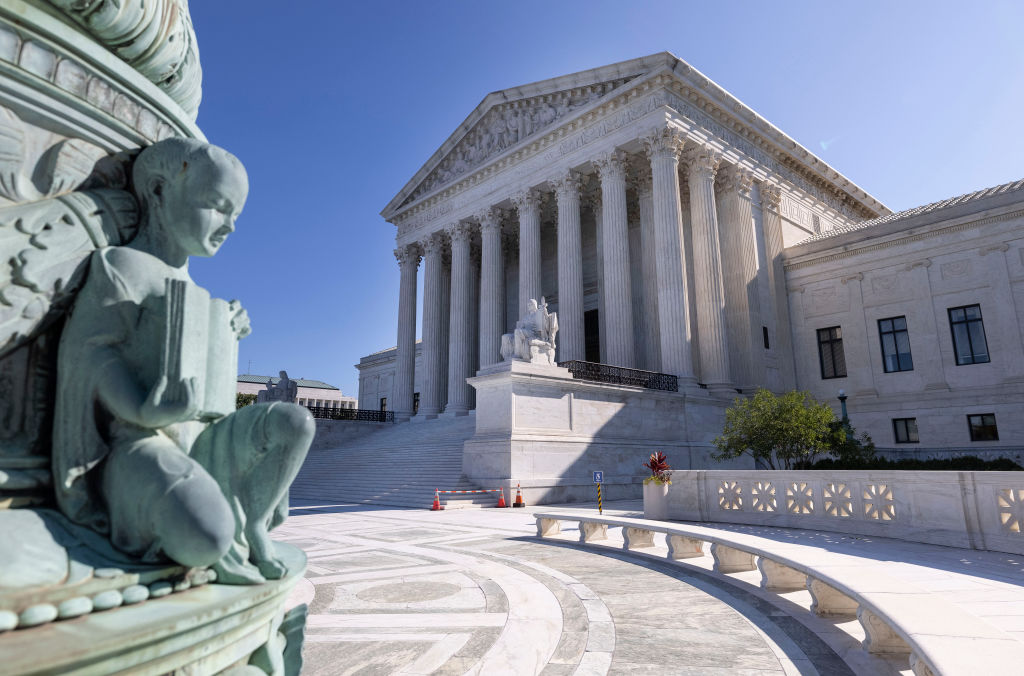On May 1, the Supreme Court agreed to hear a new case in its next term starting in October. This particular case has the real potential to force a hard shift in the constant struggle of citizens versus bureaucrats in favor of the individual. The Court voted to take Loper Bright Enterprises v. Raimondo as a direct challenge to a prior ruling, Chevron v. Natural Resources Defense Council (Chevron). The landmark Chevron ruling produced a massive deference to government agencies’ interpretations of laws and rules, and its ouster would yield an equally significant liberty gain.
Checks and Imbalances in Chevron
Chevron is a 1984 Supreme Court case that produced the “Chevron deference,” a court-made rule conservatives and libertarians have been fighting ever since. If the meaning of a statute is challenged and the language is “unambiguous,” then that meaning is applied. As it should be. But what if a court finds the words produce ambiguity in their meaning? If you answered that the Court would decide, you get an “A” in “the grade school civics version of American government,” but not the real world. Under Chevron:
“[I]f it is ambiguous, the Court must defer to the agency’s interpretation so long as it is reasonable. When the Court and the agency disagree over the best interpretation of the statute, it is the agency that wins out, so long as its interpretation is deemed a permissible one.”
That’s from Thomas Berry and Isaiah McKinney, two Cato Institute lawyers pushing the Court to overturn the doctrine. They have some allies on the Court. Justice Clarence Thomas has written critically of Chevron, and Justice Neil Gorsuch delivered a withering rebuke of the Chevron deference from the bench last year. He called it “judicial abdication” and produced what looks like a future opinion in Loper Bright Enterprises v. Raimondo. He said an expansive view of Chevron, which many courts employ:
“Rather than provide individuals with the best understanding of their rights and duties under law a neutral magistrate can muster, we outsource our interpretive responsibilities. Rather than say what the law is, we tell those who come before us to go ask a bureaucrat. In the process, we introduce into judicial proceedings a ‘systematic bias toward one of the parties.’”
 Gorsuch went on: “Nor do we exhibit bias in favor of just any party. We place a finger on the scales of justice in favor of the most powerful of litigants, the federal government, and against everyone else.” He said courts exercising this deference often failed to give people a “fair trial in a fair tribunal.”
Gorsuch went on: “Nor do we exhibit bias in favor of just any party. We place a finger on the scales of justice in favor of the most powerful of litigants, the federal government, and against everyone else.” He said courts exercising this deference often failed to give people a “fair trial in a fair tribunal.”
A Finger on the Scale
When the Court grants review, or “certiorari,” it announces a question it proposes to resolve. Here, it plans to confront Chevron directly and says the justices will address “[w]hether the Court should overrule Chevron or at least clarify that statutory silence concerning controversial powers expressly but narrowly granted elsewhere in the statute does not constitute an ambiguity requiring deference to the agency.”
We should expect to see statists, progressives, big box media, and establishment supporters react with a massive backlash to this decision to re-examine Chevron. You can measure the importance for individual liberty by the reaction to the Court’s accepting the case. It holds great potential for a steep reduction in power from a political branch to judicial and constitutional governance.




